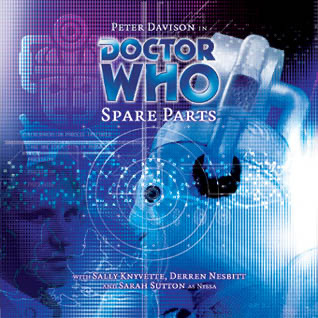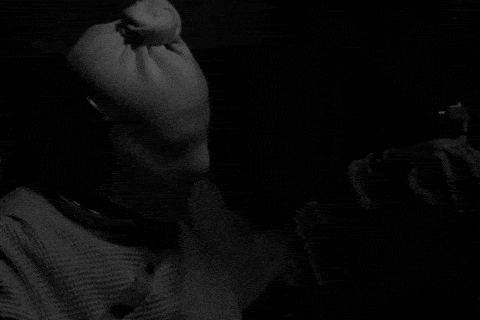#Telos
Text
One of my favourite little details about the James Somerton story is how his movie company he created to steal $60k from his fans is an anagram of the word stole
1K notes
·
View notes
Text
I hope James Somerton is alive and looked after. Being a plagiarist does not make you deserve death by suicide. There can be redemption for James. There can be a life for James. Just not on YouTube. I hope he realises that.
I also hope Hbomb has people to support him. All he did was make a thorough video about plagiarism and its consequences. He wasn’t mean. He wasn’t unfair. He wasn’t harassing. He explicitly condemned harassing James. Harry did his job, and did it with as much due diligence and empathy as he could. I hope people jumping to blame him realise that. The worst things said about James were not said by Harry, not by a long shot. Hbomb is not responsible for people who do exactly the opposite of what he supported.
Also, I hope that the people blaming Harry understand that this might be what James wants. If you don’t have any hope left, you might just settle for revenge. Plenty of people make their last (public) act a spiteful one. This is why blame is not helpful. Whether James genuinely does something or not, blame further exacerbates the situation.
I just hope James hasn’t done anything irrevocable. Even if you can’t find it within yourself to have sympathy for him, imagine what his suicide could do to Hbomb, Jessie Gender, Dan Olson, Todd in the Shadows or ex-Patreons who voiced their disdain.
It’s a horrific possibility and we should all pray it does not happen.
#james somerton#hbomberguy#Hbomb#dan olson#folding ideas#jessie gender#todd in the shadows#Telos#James of Telos#tw sui attempt
347 notes
·
View notes
Text
Can I say something?
Due to the lack of delivery of telos studio, Doug Walker is a better filmmaker than James Somerton.
Change my mind
#you can't#is the wall good? no. Is it done? yes#this is the funniest thing that has ever happened to me#yt drama ily#james somerton#nostalgia critic#telos
79 notes
·
View notes
Text








STAR WARS APPRECIATION WEEK -> DAY: 4
Expanded Universe: Star Wars Knights of the Old Republic II: The Sith Lords (2004)
video credit
#swaw2023#kotor 2#kotor#kotor gifs#sw#star wars#ebon hawk#nar shaddaa#telos#darth sion#knights of the old republic#flashing#eye strain
303 notes
·
View notes
Text



realized I needed to make an object head OC, for enrichment, so meet Telos! It uses it/it's pronouns and is an inventor! + a bonus doodle of it hanging out with my buddies object OCs Hoya (fish girl, she/they, belongs to @taya-ki) and Mellie (satellite, he/they, belongs to @candycrypt1d)
16 notes
·
View notes
Text

Doctor Who - Earthshock (1982)
#doctor who#dr who#classic who#classic doctor who#fifth doctor#5th doctor#whoniverse#cybermen#cyberman#telos#mondas#earthshock#tardis#screencap#1980s#80s#sci fi#adric#adric doctor who#peter davison#tegan jovanka#time lords#nyssa of traken
36 notes
·
View notes
Text

Commission of T-elos, Pneuma, Brighid and Rex for Ontario1914!
#commission#ontario1914#xenoblade chronicles 2#azur lane#crossover#t-elos#pneuma#brighid#rex#t-elos xenoblade#telos#pneuma xenoblade#brighid xenoblade#rex xenoblade#xenoblade 2#xc2
155 notes
·
View notes
Text





These are the only cybermen in mu head-canon



#mondas#mondasian cybermen#spare parts#big finish#the tenth planet#the first doctor#Cyberman#world enough and time#the doctor falls#cyberbill#cyber bill#you will be like us#telos#doctor who#whoniverse#classic who#scariest cybermen
39 notes
·
View notes
Text
#Telos#mathcore.#sludge.#screamo.#DENMARK BAYBEEEEE#i can't believe this is my first time spinning this#Bandcamp
7 notes
·
View notes
Text

Validus
Stephen Segovia - Elmer Santos
13 notes
·
View notes
Text
#old republic#the old republic#star wars legends#sw legends#sw eu#star wars eu#star wars#starwars#swtor#swotor#game: kotor#kotor 1#kotor ii#kotor#kotor 2#kotor i#knights of the old republic#star wars knights of the old republic#tatooine#korriban#kashyyyk#onderon#malachor#telos#manaan#yavin 4#darth revan#revan#sw games#planets
13 notes
·
View notes
Text
something i did for halloween!

#xenosaga#t-elos xenosaga#telos#the joke was bloody mary lol bc shes legit mary magdaldene#illustration#art#artists on tumblr#digital art#fanart#fan art
78 notes
·
View notes
Text




Modern ao? dad ao? rattling a cup with coins in it
5 notes
·
View notes
Text

sorry, it feels like i only use this blog for promotion nowadays but check it out! me and my friends are doing a screamo festival in ungdomshuset, copenhagen with A LOT of amazing screamo bands. entry is cheap and it will be BEAUTIFUL. you should really come if you are near <3
(and its so crazy that there is a festival named after my label??? truly wild times...)
#screamo#skramz#emo#real emo#emocore#emotional hardcore#emotive hardcore#see you next summer#emoviolence#barabbas du förtappade#nuvolascura#puke wolf#regarding ambiguity#...och sedan drunknade vi#hudsult#in the waves#omsorg#telos#wlots
12 notes
·
View notes
Link
By: Jonathan Haidt
Published: Sep 23, 2022
In 2016 I gave a lecture at Duke University: “Two Incompatible Sacred Values in American Universities.” I suggested that the ancient Greek word telos was helpful for understanding the rapid cultural change going on at America’s top universities that began in the fall of 2015. Telos means “the end, goal, or purpose for which an act is done, or at which a profession or institution aims.” The telos of a knife is to cut, the telos of medicine is to heal, and the telos of a university is truth, I suggested. The word (or close cognates) appears on many university crests, and our practices and norms — some stretching back to Plato’s academy — only make sense if you see a university as an institution organized to help scholars get closer to truth using the particular methods of their field.
I said that universities can have many goals (such as fiscal health and successful sports teams) and many values (such as social justice, national service, or Christian humility), but they can have only one telos, because a telos is like a North Star. An institution can rotate on one axis only. If it tries to elevate a second goal or value to the status of a telos, it is like trying to get a spinning top or rotating solar system to simultaneously rotate around two axes. I argued that the protests and changes that were suddenly sweeping through universities were attempts to elevate the value of social justice to become a second telos, which would require a huge restructuring of universities and their norms in ways that damaged their ability to find truth.
I expanded on this argument in a blog post for Heterodox Academy, predicting that “the conflict between truth and social justice is likely to become unmanageable. … Universities that try to honor both will face increasing incoherence and internal conflict.”
It’s now six years later, and I think it’s clear that this prediction has come true. It has been six years of near-constant conflict, with rising numbers of attempts to get scholars fired or punished for things they have said, and a never-ending stream of videos showing students (and sometimes professors) saying and doing things that are gifts to critics of universities and of the left. As one university president said to a friend of mine in 2019, “Universities are becoming ungovernable.” Public trust in universities has plummeted since 2015, first on the right, but later across the board. We are in trouble.
How do we get out of this mess? How do we regain the respect of the public? There is no easy answer because many of our problems are tied to the broader problems of the country, particularly its ever-intensifying political-polarization spiral, and the increasing levels of anxiety and fragility of our incoming students.
But even if America is far down the road to political and institutional collapse, it is still incumbent on every professor to act properly and professionally in the meantime — in part because professionals abandoning their duties in our political and epistemic institutions is a major cause of the collapse. So how do we act properly and professionally? What is the right thing to do when there are so many competing crises, each with its own moral demands? Should professors engage in political activism — in their teaching and in their research — and push their universities and professional associations to do so as well?
In the rest of this essay I’d like to introduce the concept of fiduciary duty, which complements the concept of telos and can help explain the moral incoherence that has overtaken the academy since 2015, as well as give us a moral foundation upon which to stand when we resist pressures to violate our duties.
The word fiduciary comes to us from the Latin fidere, “to trust.” In any large-scale society, people need to rely on others who are not kin, often when they are in a position of vulnerability. Roman, English, and later American law all developed legal designations that enable some people or institutions to hire themselves out as “trustees” who act as “agents” of the person (the “principal”) who invests trust in them. Such agents have fiduciary duties toward their beneficiaries, which means first and foremost absolute loyalty. They must put the needs of the beneficiary first and must never, ever profit at the beneficiary’s expense. They must avoid and eliminate all conflicts of interest, because the lure of such potential benefits can — and often does — corrupt and subvert the fiduciary’s ability to carry out their duty.
American corporate law has interpreted fiduciary duties using the psychology of purity and sanctity. A fiduciary relationship is treated as something different, higher, purer, than a simple contractual relationship. As explained by the Supreme Court justice Benjamin Cardozo in 1928:
A trustee is held to something stricter than the morals of the market place. Not honesty alone, but the punctilio of an honor the most sensitive, is then the standard of behavior. As to this there has developed a tradition that is unbending and inveterate. ... Only thus has the level of conduct for fiduciaries been kept at a level higher than that trodden by the crowd.
Is the concept of fiduciary duty useful in the academy? To what must professors show such absolute loyalty, such elevated ethics, with no deviations or compromises?
We have two such duties, related to our two distinct roles as teachers and as scholars. As teachers I believe we have a fiduciary duty to our students’ education. As scholars I believe we have a fiduciary duty to the truth.
Let me note right away that the concept doesn’t fit perfectly. Our students are not our principals, and we are not their agents. We are not obligated to act in their best interest overall; we are duty-bound to advance their education and never to act in a way that retards it. When we do our jobs well, we are professional educators, not therapists, coaches, or parents. Similarly for the truth: It is not a person or “principal” who hired us as “agents” and can give us orders. So I’m going to call these relationships “quasi-fiduciary duties.”
But the elements of elevated ethics, near-sacredness, and a ban on conflicts of interest work quite well, as you can see from some hypothetical examples of professors with such conflicts. The mere contemplation of such situations should give us all a feeling of discomfort or disgust.
Professor A assigns his own textbook to his psychology class even though the book is 20 years out of date because he wants to maximize his royalty payments.
Professor B plans her psychology lecture on love and sexuality in a way that she knows will make her appealing to young men because she likes to date those men after they have graduated from college and become “fair targets.”
Professor C is an evangelical Christian teaching English literature in a secular university who chooses readings and uses his lectures to encourage students who are lapsed Christians to renew their faith in Jesus Christ.
Professor D is a right-wing activist teaching English literature at a state school in a red state. She chooses readings and uses her lectures to encourage students to support her favorite right-wing causes and candidates.
Do you agree that all four of these professors have behaved unprofessionally? All four are treating their students as means to advance their own ends: financial, sexual, religious, and political. (I made Professor D be right-wing, but I assume you’ll agree that the violation is just as bad for a left-wing activist in a blue state.) All four have therefore violated their quasi-fiduciary duty of loyalty, which requires them to advance their students’ education, not their own projects. All four should be subject to disciplinary action.
We can do the same thought experiment for professors as scholars and scientists who violate their quasi-fiduciary duty to the truth:
Professor A works hard to prove that social media is not harmful to adolescents because a social-media platform pays her $100,000 for each study she publishes that supports that conclusion.
Professor B decides to spin his research findings away from what he knows is true in order to avoid taking a controversial stance because he knows that such a stance would reduce his ability to find sexual partners.
Professor C is a biblical scholar who distorts her translation of an ancient manuscript because she believes that an accurate translation would cause some people to lose faith in God.
Professor D is a left-wing political scientist who deletes all of the qualitative interviews he has conducted for his book that he thinks might make progressives look bad.
What do you think of these four professors? Did they behave professionally, or did they violate their quasi-fiduciary duty to the truth? I think they all distorted their scholarship and put work out into the public that is not honest, not faithful to the truth, because they were pursuing their own personal agendas — for money, sex, religion, and politics. (Once again, I assume you’ll agree that Professor D is equally culpable whether he’s on the left or the right.) All four would bring disgrace to the academy if their actions became known.
I have been thinking a lot about fiduciary duty because my main professional association — the Society for Personality and Social Psychology, known as SPSP — recently asked me to violate my quasi-fiduciary duty to the truth. I was going to attend the annual conference in Atlanta next February to present some research with colleagues on a new and improved version of the Moral Foundations Questionnaire. I was surprised to learn about a new rule: In order to present research at the conference, all social psychologists are now required to submit a statement explaining “whether and how this submission advances the equity, inclusion, and anti-racism goals of SPSP.” Our research proposal would be evaluated on older criteria of scientific merit, along with this new criterion.
These sorts of mandatory diversity statements have been proliferating across the academy in recent years. The Foundation for Individual Rights and Expression, the Academic Freedom Alliance, and many professors have written about why they are immoral, inappropriate, and sometimes illegal. I’ll add one additional concern: Most academic work has nothing to do with diversity, so these mandatory statements force many academics to betray their quasi-fiduciary duty to the truth by spinning, twisting, or otherwise inventing some tenuous connection to diversity. I refuse to do this, but I’ve never objected publicly.
The SPSP mandate, however, forced us all to do something more explicitly ideological. Note that the word diversity was dropped and replaced by anti-racism. So every psychologist who wants to present at the most important convention in our field must now say how their work advances anti-racism. I read Ibram X. Kendi’s book How to Be an Antiracist in the summer of 2020, so I knew that I could no longer stay silent.
I wrote to Laura King, the president of SPSP (and a friend from way back in the first years of positive psychology). I asked her if this was really now an SPSP policy. In her response she reaffirmed the telos of SPSP: “SPSP’s mission remains to advance the science, teaching, and application of social and personality psychology.” She then said that she thought part of that mission “should involve amplifying the voices of those who have historically been underrepresented in our field.” That is a view I agree with: Diversity stated in that unobjectionable form can be a value of the organization. But (like all values), I think it must not be raised to a second telos. She also affirmed that, yes, the mandatory statements are now official policy, and she added: “I am not super clear on why anti-racism is viewed as problematic.”
I wrote back to explain why I thought it was problematic, quoting passages from Kendi’s book, such as this one:
The only remedy to racist discrimination is antiracist discrimination. The only remedy to past discrimination is present discrimination. The only remedy to present discrimination is future discrimination.
I explained why I thought the claim was incorrect from a social-science perspective because there are obviously many other remedies. And I explained why I thought the claim was incorrect morally because it requires us to treat people as members of groups, not as individuals, and then to treat people well or badly based on their group membership. That’s exactly the opposite of what most of us who grew up in the late 20th century thought was a settled moral fact. (I should note that in her response to me, King said that SPSP didn’t necessarily endorse Kendi’s version of anti-racism, and she pointed out that there were other definitions available.) I can add, in retrospect, a quote from Paul Bloom and his colleagues Christina Starmans and Mark Sheskin. In a 2017 essay in Nature Human Behaviour, they reviewed research on the psychology of fairness and then argued that “humans naturally favour fair distributions, not equal ones, and that when fairness and equality clash, people prefer fair inequality over unfair equality.”
I believe that anti-racism has a place at SPSP, and I said so to King. Let there be speakers, panels, and discussions of this morally controversial and influential idea at our next conference! But to adopt it as the official view and mission of SPSP and then to force us all to say how our work advances it, as a precondition to speaking at the conference? This is wrong for two reasons: First, it elevates anti-racism to be a coequal telos of SPSP, which means that we would no longer rotate around the single axis of excellent science. Every talk would have to be both scientifically sound and anti-racist, even though good science and political activism rarely mix well. Second, it puts pressure on social psychologists — especially younger ones, who most need to present at the conference — to betray their fiduciary duty to the truth and profess outward deference to an ideology that some of them do not privately endorse.
In 1970 the economist Albert O. Hirschman wrote the important book Exit, Voice, and Loyalty. Hirschman was analyzing what happens when members of an organization perceive that the quality of an organization, or its value to them, has declined. They then have three alternatives: They can exit the organization, they can voice their objections within the organization, or they can stay loyal to the organization as it currently is by doing nothing or by attacking those who criticize it.
In 2011 I began to perceive a problem in social psychology: Almost all of us were on the left, and I began to see how our political homogeneity damaged the quality of some of our research. I love my field, and I loved SPSP and its conferences, so I raised my voice about it. At the 2011 SPSP conference, I gave a plenary talk on how social psychology was becoming a tribal moral community. I raised my voice again when I joined with five other social psychologists to write a paper in Behavioral and Brain Sciences titled “Political Diversity Will Improve Social Psychological Science.” That collaboration laid the groundwork for what became Heterodox Academy, once we learned that these problems were happening in many academic fields.
I raised my voice again to write to King and object to the new policy. But soon it will be time for exit. I cannot remain loyal to an organization that is changing its telos and asking its members to violate their quasi-fiduciary duties to the truth. I am especially dubious of the wisdom of making an academic organization more overtly political in its mission, especially in the midst of a raging culture war, when trust in universities is plummeting.
So I’m going to resign from SPSP at the end of this year, when my membership dues run out, if the policy on mandatory statements stays in place for future conventions. I hope that other members will raise their voices.
In the second century CE, Marcus Aurelius wrote this in his Meditations:
Never regard something as doing you good if it makes you betray a trust, or lose your sense of shame, or makes you show hatred, suspicion, ill will, or hypocrisy, or a desire for things best done behind closed doors.
It is timeless advice for professors who strive to live up to their two quasi-fiduciary duties: to our students’ educations, and to the truth.
This essay first appeared as a blog post on the Heterodox Academy website.
==
As always, choose truth over faith.
#Jonathan Haidt#telos#diversity#equity#inclusion#diversity equity and inclusion#diversity statements#loyalty oath#mandatory prayer#antiracism#antiracism as religion#truth vs faith#faith vs truth#truth#critical social justice#social justice#wokeness as religion#woke activism#woke#wokeism#cult of woke#religion is a mental illness
13 notes
·
View notes
Text










Fire for Every child's Tear Drop!
Water for Every act of Deceit!
Air for extreme Arrogance !
Earth for Every Creature's sorrow!
With this excrement from my Sun Soul and Earth body : I Curse You Set. I Curse You Yahweh. I Curse You Baphomet. I Curse You Baal. I Curse You Lucifer. I Curse You Satan.
From Draco to Orion and Beyond. To the depths of whence You dwell within Mother, illegitimately.
To Your Lower Realms.
I Curse You all.
I Curse Your Empire. I Curse Your Existance. I Curse Your Every intention.
I Curse the so called "Jews" - Your children.
I Curse the blind Initiates - Illuminati.
I Curse the Cabal.
May You Never know Peace. May You yearn for the Light that You Cursed.
May You experience the Infinite karma and repucission for Your Actions.
May You deeply regret - through Truth and retribution , for oppressing the Children of the Sun.
May You witness the Rising of the African, the Sun, the Summer Child, Gold - as You descend into cold, misery and darkness. Winter.
May Your Ego be stripped through humility and Humilation.
May You search for Forgiveness like Christ Consciousness. May it reject you for Your crimes against children.
May the Multiverse and all Creature's bare witness to the justice of Light and Love.
May the House of Amenti reign Supreme.
May RA be blessed.
May Miriam be exalted.
The enemy vanquished and passed on into the ashes of history.
Forever held in contempt and disgrace.
#satanic#illuminati#nwo#666 satan#lucifer#baphomet#baal#Remphan#moloch#blacknobility#ciarrka#draconis#Orion#councilof6#Mars#telos#greys
4 notes
·
View notes